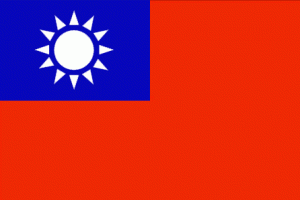 The government of Taiwan has backed down from plans to amend its copyright law to justify take-downs of foreign websites accused of hosting copyright-infringing material. The Taiwan Intellectual Property Office (IPO) had proposed legislation to create a blacklist and allow DNS blocking. A citizen backlash sprung up immediately, and the IPO initially claimed the public was exaggerating the issue. When it became clear that Taiwan would face an internet blackout, the IPO announced that it would withdraw the copyright amendment.
The government of Taiwan has backed down from plans to amend its copyright law to justify take-downs of foreign websites accused of hosting copyright-infringing material. The Taiwan Intellectual Property Office (IPO) had proposed legislation to create a blacklist and allow DNS blocking. A citizen backlash sprung up immediately, and the IPO initially claimed the public was exaggerating the issue. When it became clear that Taiwan would face an internet blackout, the IPO announced that it would withdraw the copyright amendment.
Soon after the legislation was announced, Wikimedia Taiwan released a statement comparing it to SOPA and opposing it for four reasons:
- The use of ISP blocking technology could lead to serious violations of the constitutional guarantees freedom of communication.
- Overly strict intellectual property protection measures could block access to culture, knowledge flows, and accumulation.
- “Significant” foreign infringing websites were vaguely defined, so it was highly likely that certain sites would be impropperly blocked.
- Giving the executive branch discretion to on site blocking is outside of the excecutive brach’s juridicton, and would lead to a high risk of abuse by the executive authorities.
Other civil society voices are quoted (and translated) by Oiwan Lam in Global Voices. Lam notes that “the government claims that the amendment would stop the illegal sharing of movies and music protected by copyright law. Although IPO has stressed that the Internet service providers will only block overseas online platforms which are ‘specifically designed for copyright infringement activities’ or websites which have ‘obviously violated copyrights,’ such as Megaupload, the authorities will target online platforms that enhance peer-to-peer transmission including Bit Torrent, Foxy, and FTP sharing.”
As noted above, opponents of the legislation organized a blackout. Maria Sutton writes in the EFF Deeplinks blog that “Taiwanese users were going to stage an Internet black out on Tuesday June 4th. Several websites, including Wikipedia Taiwan and Mozilla Taiwan pledged to go dark in order to raise awareness. At the time this was written, more than 45,000 people had shown their commitment to protest the bill.”
However, the day before the planned blackout, the Ministry of Economic Affairs announced that it would withdraw the legislation. IPO Director-General Wang Mei-hua told the press that her office “never intended to challenge or acted to damage” free speech. She also said that the IPO would continue to discuss a way forward with judicial authorities.
The China Post reports that “Wang did not provide a direct answer to the question of whether TIPO took netizen opinions into account seriously enough when contemplating the regulation. She said instead that whether or not netizens have exaggerated or overreacted over this issue she hopes that the public would not mistakenly believe TIPO had the intention of breaching Taiwan’s freedom of speech. Content creators can notify Internet service providers directly to block domestic websites that infringe on copyright, Wang said, adding that executive agencies would not play a role in this process.”
It should be noted that USTR has been pushing Taiwan to address online piracy. The 2013 National Trade Estimate Report on Foreign Trade Barriers noted that “Taiwan generally provides effective intellectual property rights (IPR) protection and enforcement. Rights-holders continue to express concern, however, regarding infringement of copyrighted material on the Internet.” USTR noted that Taiwan amended its copyright law in 2009 to “require Internet service providers (ISPs) to undertake specific and effective notice-and-takedown actions against online infringers to avoid liability for the infringing activities of users on their networks. The law’s provisions, however, failed to indicate clearly what constituted an infringement, how notifications should be handled, and other procedural matters. Rights-holders and ISPs, despite extensive negotiations, have not yet reached consensus on how to implement the law effectively.”
The 2013 Special 301 Report, though it did not include Taiwan on any of its blacklists, said it would work with Taiwan “to strengthen legal regimes and enhance enforcement” in order to “encourage effective action against piracy over the Internet.”




